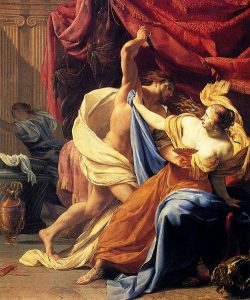I’m also delighted to announce I’ve released a short story, Dying for Rome: Lucretia’s Tale, which retells the historic story of the tragic girl whose death inspired the men of Rome to rise up against a tyrant king and establish the Roman Republic. Was she a victim or a champion? A pawn in political schemes or the catalyst for rebellion? In this vivid short story, I explore Lucretia’s character to reveal a tender portrait of a young girl misused by men who transforms into a woman with a passion for justice.
Subscribe to my monthly Inspiration and Giveaway newsletter and you will receive a free copy of this 80 page short story.




Leave a Reply